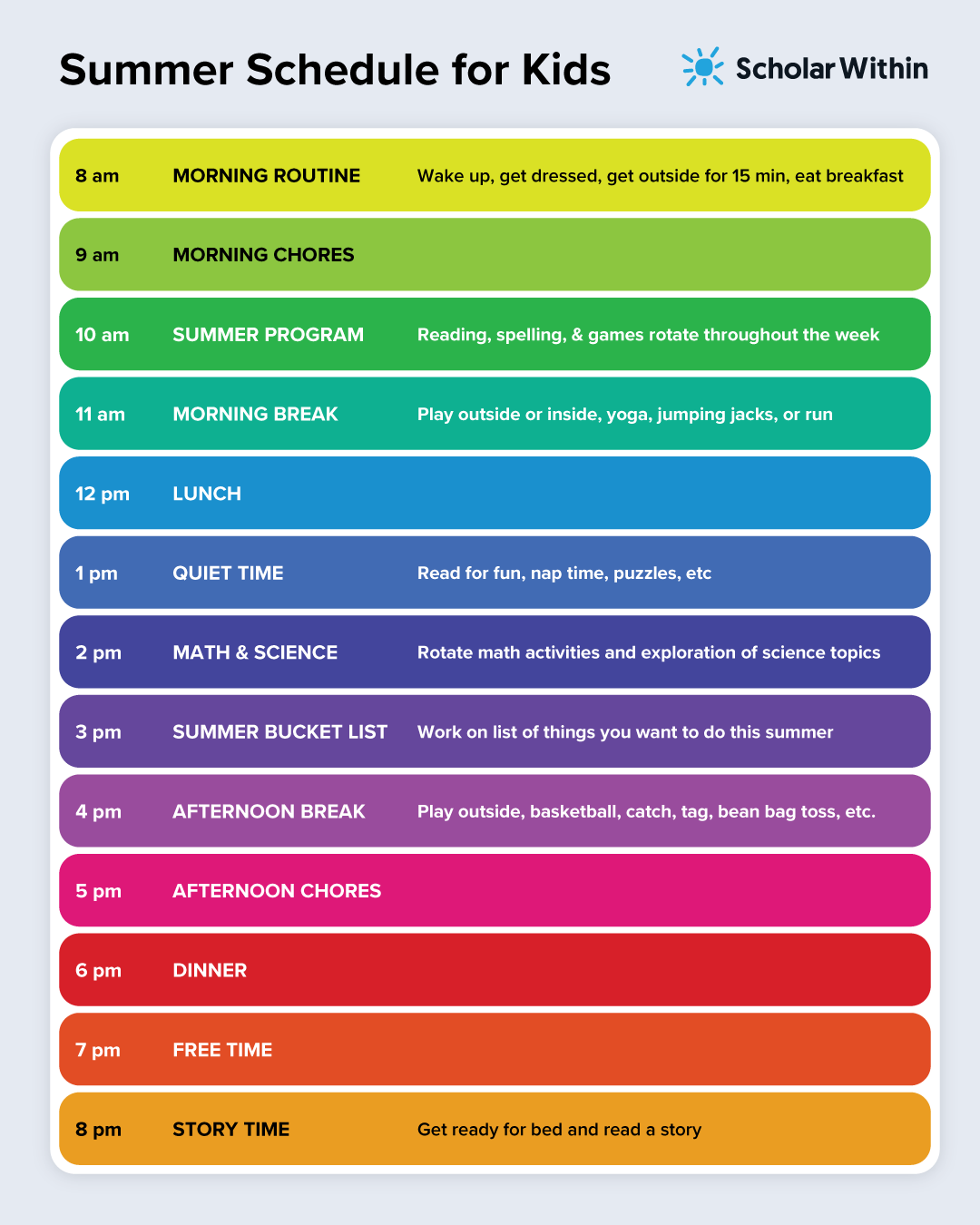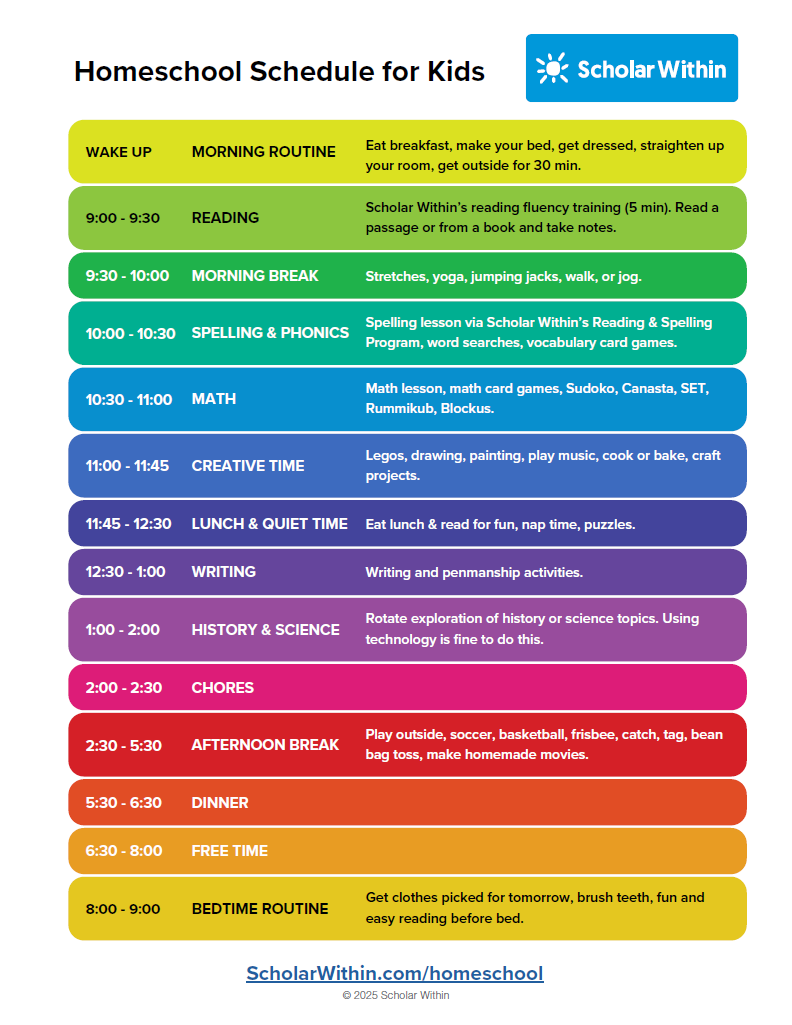
Sleeping Tips and Solutions for Sleep Problems
How to Adjust to the Time Change
Table of Contents
- Overview
- Sleep Problems and ADHD
- Set Up a Bedtime Routine
- 9 Sleeping Tips and Solutions
- 5 Tips for When You Wake Up
Overview
Sleep problems can affect all of us and are especially difficult with the time change. Sleep is critical for our minds, memory, learning, and development. While sleeping, your brain organizes information, makes connections, and even solves problems. Sleeping tips and solutions can help you and your child get a better night’s sleep.
Sleep helps transform your short-term memory into long-term memories. Susumu Tonegawa, the Professor of Biology and Neuroscience at MIT, discovered that you actually replay your memories from your day like video clips in your sleep before they get consolidated into long-term memories.
Sleep helps restore and repair the brain by flushing out toxins that build up throughout the day. It helps reorganize memories and recharges your brain. Sleep also repairs cells, tissues, and muscles in your body.
Sleep Problems and ADHD
Sleep problems often impact those with ADHD. In fact, studies show that 50% of those with ADHD have signs of sleep deprivation at least a few nights a week. Studies also show that a lot of kids’ ADHD symptoms seem to almost disappear when they get enough sleep! Children and adults who have ADHD can have difficulties:
- Falling asleep
- Staying asleep
- Waking up
Even if you don’t have ADHD, you can be affected by sleep problems and the time change can throw your regular sleep schedule out of whack. You know as well as I do that when you don’t get a good night’s sleep you tend to get sleepy during the day. When stress is put on you, you don’t cope as well. Small things can irritate you more easily. Learning is more difficult. Focus can almost be impossible.
Tips to Fix Sleep Problems
So, what can you do to help your kids get a better night’s sleep? How can you get that churning mind and or body to calm down? Earlier in the day, or before dinner, make sure to get some exercise like a walk, run, jumping jacks, or playing at a local park. Exercise has been shown to elevate the brain’s dopamine, norepinephrine, and serotonin levels that also help focus and attention. It is much easier to sleep when your body is physically exhausted.
Set Up a Bedtime Routine
- Have your kids pick out their clothes for the next morning.
- Be sure their backpack with homework assignments is packed up and ready by the door.
- No soda, iced tea or coffee before bedtime.
- Turn off the screens (television, iPads, etc.) at least 30 minutes before bedtime. Screens disrupt the circadian rhythms, disrupting and suppressing the release of the sleep-promoting hormone melatonin which makes it more difficult to sleep.
- Use Night Light or Night Shift modes on your devices if you must look at screens in the evening. These modes help reduce the blue light that emits from your screens. Take a look at the settings on your phone or computer for Night Light (Windows 10, Android) or Night Shift (Mac, iOS).
- It can also help to dim some of the lights in your house or turn a couple off while you are preparing for bed.

Sleeping Solutions and Tips to Help Adjust to the Time Change
1. A warm shower or bath
Make sure it’s not too hot, or you may need to take 60 to 90 minutes to cool down before bed. The steam from a warm shower acts as a natural decongestant and can help you breathe easier. After you get out of the shower, your body will naturally cool down and signal your body it is ready for sleep.
2. Soft music
I use Mark Romero or Gary Lamb. They can also be used during homework time.
3. Read a few pages, a chapter, or a story
For kids, make sure that the selection is at or below their reading level for reading before bed. This should be an enjoyable book that should be easy for them to read. Easier material will help them continue positive associations with reading. This is a great way to get away from screens 30-60 minutes before bed.
4. A massage or back rub
Massage helps you relax by slowing down your heart rate. It helps increase blood and lymph circulation. Your blood pressure decreases, and your production of stress hormones taper off. Research has shown that massage therapy for children on the Autism spectrum helps with hyperactivity, off-task behavior, and reduces sleep problems at home.
5. Chamomile tea
Chamomile helps calm your nervous system as well as soothes and supports digestion.
6. Banana tea
- Cut off both ends of a banana and put it with the peel and all into a small pot of water. Boil it for about 10 minutes pour it through a colander to catch the peel.
- Add some Ceylon cinnamon for a little more flavor.
- The potassium and magnesium from the banana are great for relaxing the muscles. They are also beneficial to the nervous system.
7. Essential oils
- Try some essential oils in a diffuser in the bedroom.
- Lavender oil works wonderfully for calming one down.
- A few drops of cypress oil on the pillow can help too.
8. Clean air
If you or your kids seem to wake up congested or coughing, see about getting some household plants to help filter the air and generate oxygen. Snake plants (Sanseveria) and aloe vera can be great additions to the house. Also, see about running a HEPA air purifier in your rooms while you sleep.
9. Temperature
This may very from person to person, but doctors recommend setting your thermostat between 60 to 67 degrees for sleeping. Cooler temperatures for sleeping will help you get into and stay in deep sleep for longer.
Sleeping Tips for When You Wake Up
1. Drink water right when you wake up and throughout the day
Be sure to drink plenty of water when you wake up. Water helps you become more alert and is essential for brain function. Water helps:
- Improve concentration and cognition
- Balance your mood and emotions
- Memory function
- Increase blood flow and oxygen to your brain
2. Add lemon to your water
Lemon is a rich source of Vitamin C and it helps you maintain pH balance in your body, acts as an anti-inflammatory, and aids with digestion.
3. Cold shower
Cold showers improve your circulation by first redirecting blood to all your key organs and then when you step out of the cold, blood flow to the rest of your body increases. The increase in circulation stimulates immune cell production and can help reduce sore muscles and supports recovery after sports. Interested in trying it? Start off with a warm shower and then near the end, switch it to 100% cold. Spend at least 10 seconds the first time, while trying to stay relaxed and breathing calmly. The goal is to gradually spend 1 to 3 minutes in the cold. This helps build your mental toughness and can translate to other things you do not necessarily want to do.
4. Open windows and let in the light!
Just the simple act of getting enough light from the sun can help your circadian rhythm. Turning on the lights in your house helps as well, but there is no substitute for the full spectrum of the sun and the benefits of daylight.
5. Exercise
A 2019 study found that morning exercise improves attention, visual learning, and decision-making throughout the day. It can help get your whole body working together and jump-start your mind.
What are your favorite bedtime and morning routines?
What helps you and your family get a good night’s rest? Do you do anything in the morning that helps get your day off to the right start? Let us know in the comments below.
Who is Scholar Within?
Scholar Within was founded by learning expert Bonnie Terry, M. Ed., BCET. Bonnie began designing and developing her own custom educational tools when she started her private learning center in the 1990s. Teachers kept asking what she was using with the kids who saw her because of the dramatic improvements that the kids made in school. From there, Bonnie decided to make her materials available to teachers and families worldwide.
Now, Bonnie Terry has turned her materials into a full-service online program that you can follow step-by-step at home, on your schedule. School alone is not enough anymore. Bonnie’s programs boost your kid’s overall learning skills by focusing on improving the auditory, visual, and tactile processing areas of your brain to make it work more efficiently.
Learn more about Scholar Within’s Online Reading Program.




